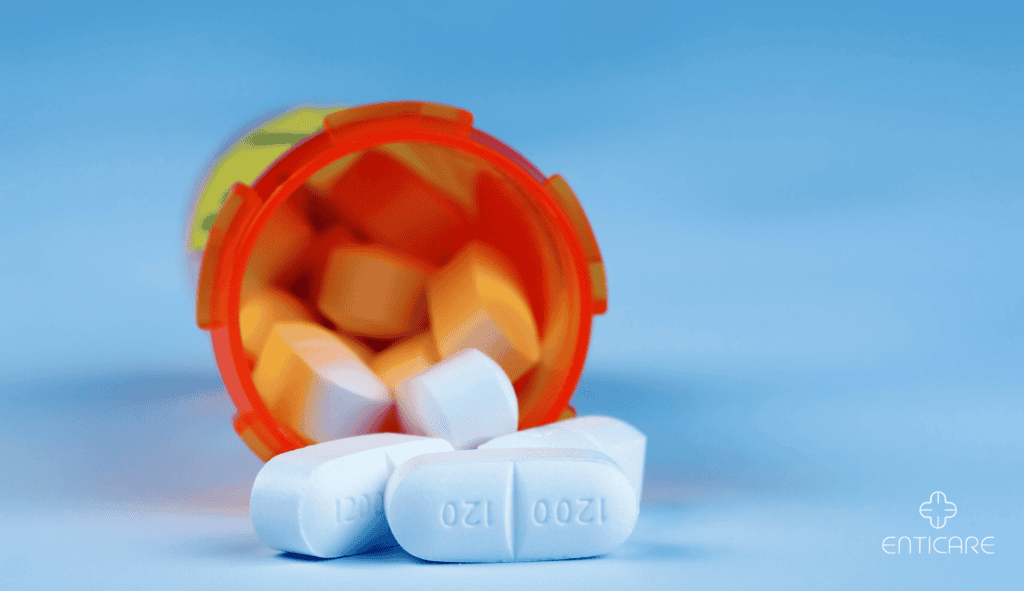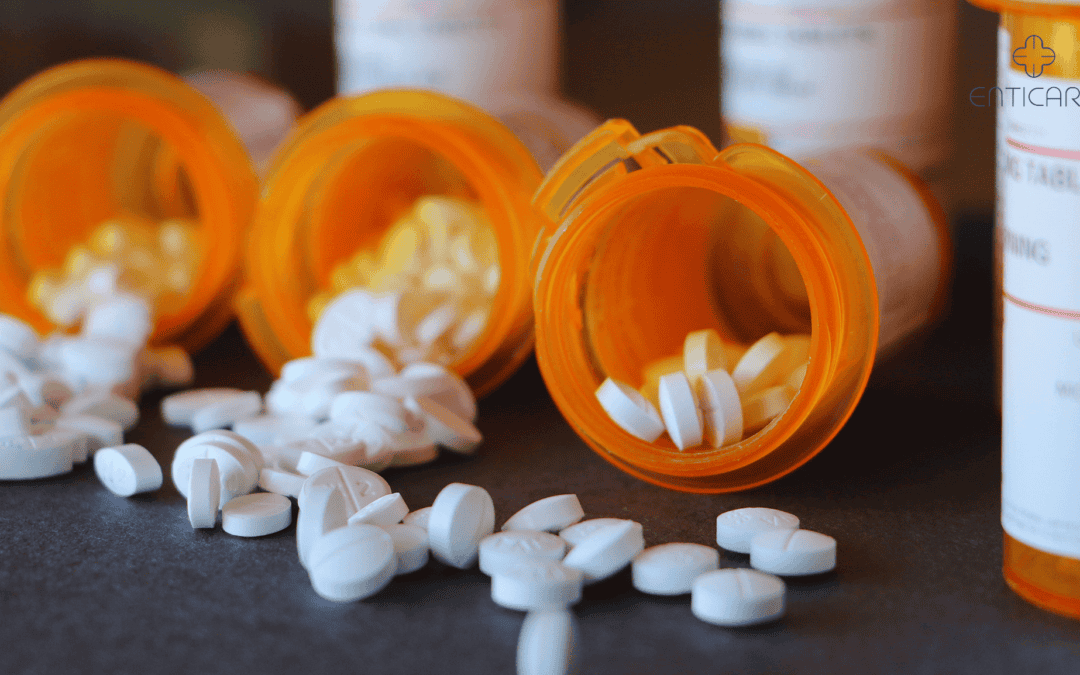Sleep apnea, a common sleep disorder, affects millions of people, disrupting their sleep and increasing the risk of serious health issues such as heart disease, diabetes, and high blood pressure. While lifestyle changes and treatments like CPAP (Continuous Positive Airway Pressure) machines or surgery often provide relief, some individuals may still struggle with their symptoms. Many look to medications to help with their condition, but not all drugs are beneficial for people with sleep apnea. Some can worsen symptoms or increase the risk of complications.
In this blog, we’ll explore medications that should be avoided if you have sleep apnea, why they pose risks, and what you can do to manage your condition more effectively.

Understanding Obstructive Sleep Apnea and Its Health Risks
Before discussing the specific medications to avoid, it’s crucial to understand the basics of obstructive sleep apnea (OSA) and why certain drugs can aggravate it. Adult OSA is a disorder characterized by interrupted breathing during sleep, and specific risk factors make it particularly relevant to adult populations.
Health Risks Associated with Sleep Apnea
Sleep apnea not only affects your quality of sleep but also leads to daytime fatigue and increases your risk of serious health problems such as heart disease, stroke, and metabolic disorders. Severe sleep apnea, in particular, is associated with even higher risks of these health issues. Severe obstructive sleep apnea is associated with even higher risks of these health issues.
Why Medications Can Impact Sleep Apnea
Certain medications can interfere with your breathing by relaxing muscles, causing drowsiness, or reducing your body’s ability to respond to low oxygen levels, worsening sleep apnea symptoms. Understanding that some medications can worsen obstructive sleep apnoea is essential, so caution is advised when considering these treatments.
Medications to Avoid with Sleep Apnea
Certain medications can exacerbate sleep apnea symptoms, so it’s essential to be aware of the potential risks. If you have sleep apnea, it’s crucial to discuss your medication regimen with your doctor to ensure that you’re not taking any medications that could worsen your condition.

Sedative Medications: Why They Worsen Central Sleep Apnea
Sedatives and tranquilizers can make it difficult for your airway muscles to stay open, leading to an increased risk of apneas (pauses in breathing). These medications can exacerbate sleep-disordered breathing by relaxing the muscles in the throat, which may worsen obstructive sleep apnoea (OSA).
Benzodiazepines
Benzodiazepines, such as Valium (diazepam) and Xanax (alprazolam), are often prescribed for anxiety, insomnia, or seizures. However, these drugs relax muscles, including those in the airway, making your throat more likely to collapse during sleep. Research suggests that benzodiazepines significantly worsen the frequency and severity of obstructive sleep apnea.
Barbiturates
Barbiturates, such as phenobarbital, also suppress the central nervous system and induce sleep. While effective for anxiety and insomnia, they reduce respiratory drive, leading to prolonged periods of shallow breathing or pauses, making obstructive sleep apnoea more dangerous.
Non-benzodiazepine Sedatives
Non-benzodiazepine sedatives, such as zolpidem (Ambien) and eszopiclone (Lunesta), are commonly prescribed for insomnia and other sleep disorders. However, these medications can relax the muscles in the throat, increasing the risk of airway obstruction. Additionally, they can cause respiratory depression, which can worsen sleep apnea symptoms. If you’re taking non-benzodiazepine sedatives and have sleep apnea, your doctor may recommend alternative treatments that do not interfere with your breathing during sleep.
cnzodiazepine Sedatives
Drugs like Zolpidem (Ambien) and Eszopiclone (Lunesta), often referred to as “Z-drugs,” are commonly used for insomnia. Although they are not benzodiazepines, these medications can still lead to upper airway relaxation and worsened obstructive sleep apnoea symptoms.
Opioid Pain Medications: Serious Breathing Risks
Opioids are powerful pain-relieving medications, but they come with significant risks for sleep apnea patients. For those with obstructive sleep apnoea, this effect can increase the risk of apneas and lead to dangerous drops in oxygen levels during sleep.
Morphine and Oxycodone
Medications like morphine, oxycodone (OxyContin), and hydrocodone (Vicodin) are frequently prescribed for moderate to severe pain. These drugs reduce pain and suppress the respiratory system, causing slower, shallower breathing. For those with sleep apnea, this effect can increase the risk of apneas and lead to dangerous drops in oxygen levels during sleep, which can exacerbate obstructive sleep apnoea.
Fentanyl
A synthetic opioid that is far more potent than morphine poses an even higher risk. It significantly depresses breathing and has been linked to fatal respiratory complications in people with obstructive sleep apnea.
Codeine
Althpotent than drugs like fentanyl, codeine still has a suppressive effect on breathing. Even in smaller doses, it can worsen the severity of obstructive sleep apnoea, making it a drug to avoid.
Antihistamines and Over-the-Counter Sleep Aids: A Hidden Danger
Many people take over-the-counter sleep aids without realizing that they can aggravate sleep apnea symptoms. Antihistamines, commonly found in these aids, can impact sleep disorders such as obstructive sleep apnoea and insomnia by causing drowsiness and potentially worsening breathing issues.
Diphenhydramine
Commonly found in medications like Benadryl and Tylenol PM, diphenhydramine is an antihistamine with sedative effects. While it helps with allergy symptoms and induces sleep, it can also relax airway muscles and lead to more frequent apneas during the night, worsening obstructive sleep apnoea.
Doxylamine
Another antihistamine found in products like Unisom is doxylamine, which causes drowsiness and muscle relaxation. For those with obstructive sleep apnoea, it can significantly increase the risk of airway collapse, leading to more severe interruptions in breathing.
Over-the-Counter Combination Products
Many cold and flu medications, including Nyquil, contain sedating antihistamines and other active ingredients. These products may help you sleep, but they can also worsen obstructive sleep apnoea and should be avoided unless prescribed by a doctor aware of your condition.
Muscle Relaxants and Sleep Apnea
Muscle relaxants, such as cyclobenzaprine (Flexeril) and carisoprodol (Soma), are often prescribed to relieve muscle spasms and pain. However, these medications can also relax the muscles in the throat, increasing the risk of airway obstruction and worsening sleep apnea symptoms. Furthermore, muscle relaxants can cause respiratory depression, which can exacerbate sleep apnea. If you’re taking muscle relaxants and have sleep apnea, your doctor may suggest alternative treatments for muscle spasms that do not compromise your breathing.

How to Safely Manage Sleep Apnea in Patients with Medication
While many medications can exacerbate obstructive sleep apnoea, managing your condition doesn’t mean that you have to avoid all medications. Selective serotonin reuptake inhibitors (SSRIs), for example, are not recommended for treating obstructive sleep apnea (OSA) but may influence REM sleep and potentially keep the upper airway open, playing a role in symptom management. The key is working closely with your healthcare provider to find alternatives that won’t interfere with your breathing during sleep.
Non-Sedating Alternatives
If you need medication to treat obstructive sleep apnoea or for insomnia or anxiety, talk to your doctor about non-sedating options like certain antidepressants (e.g., trazodone) that can help with sleep without relaxing the airway muscles.
Pain Management Alternatives
For pain relief, consider non-opioid medications such as acetaminophen or NSAIDs like ibuprofen, which won’t interfere with your breathing and can still provide effective pain relief for those with obstructive sleep apnoea. Some pain medications can cause weight gain, which may exacerbate obstructive sleep apnea symptoms.
Consult with a Sleep Specialist
If you have obstructive sleep apnea and take any of the medications listed above, consult with a sleep specialist or your primary care physician. They can help you find safer alternatives and may recommend a CPAP machine or other treatments to ensure your breathing remains stable at night.
Take Control of Your Sleep Apnea Treatment
Sleep apnea is a serious condition, and certain medications can worsen symptoms, leading to increased health risks for those with obstructive sleep apnea. Weight gain, often induced by drugs such as atypical antipsychotics and antidepressants, can exacerbate obstructive sleep apnea (OSA) and increase the severity of the condition. Sedatives, opioids, and some over-the-counter medications can make sleep apnea more dangerous by relaxing airway muscles and suppressing your respiratory system. If you have sleep apnea, it’s crucial to work with your healthcare provider to avoid these drugs and find safer alternatives.
Are you struggling to manage your sleep apnea or unsure if your medications are making it worse? Don’t wait—schedule an appointment with one of our sleep specialists today.
👉 Book your consultation here and start breathing easier tonight!

